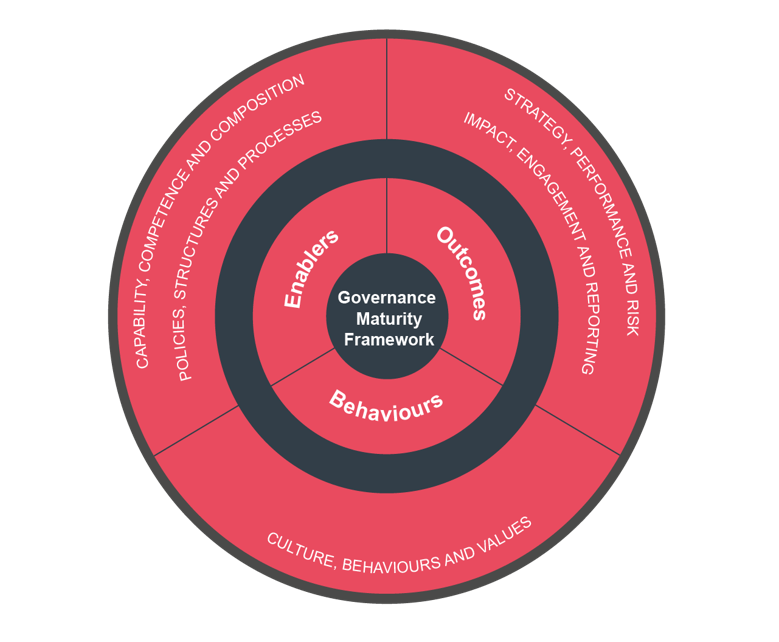
An accepted trait of good governance practice in any sector is to periodically review the effectiveness of that governance in an organisation. This helps provide confidence both internally and externally that governance arrangements are fit for purpose and help deliver the organisation’s intended outcomes.
HE regulators also usually require registered providers to undertake effectiveness reviews. The Office for Students in England outlines that an externally-informed review is one way to help demonstrate the ‘adequacy and effectiveness’ of governance arrangements. The Tertiary Education Quality and Standards Agency (TEQSA) in Australia has similar requirements.
In Wales, the recent government-commissioned Camm Review identified a number of ways in which governance needed to be improved and that external reviews have a part to play in this. An external perspective can therefore not only provide developmental support but provide improved accountability and transparency for stakeholders, increasing public trust in institutions.
Want to find out more?
If you would like to know more about our Governance Effectiveness Reviews and Benchmarking, complete the form below and we will send you an information sheet with further details.

Governance Effectiveness Reviews
We adapt our reviews to suit your needs and institutional context while maintaining the use of a robust process that triangulates the evidence collated for example through paper-based review and self-assessment. Reviews can range from facilitated workshops to a full data-driven comparative exercise delivered on location or remotely to suit your requirements.
The breadth of our reviews is valued by institutions for the understanding of governance issues that go beyond a narrow view of governance and encompass areas including EDI and academic issues.
An example of this is the specific approach we developed to fulfil the requirement of the Code of Good Governance for Scotland’s colleges to have externally-facilitated effectiveness reviews.
Governance Effectiveness Framework
During 2020 we updated our Framework for HE Governance Effectiveness to enable all higher education providers, regardless of their form, to understand the key components of good governance practice and their current performance in relation to them. We drew upon:
- updated commonly-used codes of practice such as the HE Code of Governance (CUC, 2020) and the UK Corporate Code of Governance (2018), the Scottish Code of Good Higher Education Governance (2017) and the Charity Code of Governance (2017)
- relevant reviews such as the Camm review of governance in Wales HE (2020) and lessons learned from high profile university governance matters in recent years
- in-nation regulatory developments such as the 2018 Regulatory Framework for Higher Education and the creation of the Office for Students (England).


Benchmarking
We also offer a unique Governance Effectiveness Benchmarking service through our governance effectiveness surveys, which can be undertaken on their own or as part of a fuller review. Our extensive anonymous dataset, created from our previous work with a wide variety of different providers, enables us to provide insight and analysis. Advance HE Members have free access to our Governance Effectiveness e-Survey. Benchmarking against the sector can be purchased in addition to this.
Deep-dive single committee reviews
Committees of the Board play a crucial role in the ‘heavy lifting’ of governance. They are where much of the scrutiny of performance and plans take place. We offer a deep-dive review of specific committees against their relevant Code and sector good practice – these can take place at any time.
For example, we can assess your audit committee through the lens of the CUC Audit Committees Code of Practice or remuneration committee against the CUC HE Senior Staff Remuneration Code as well as drawing on our insights into practice from HE and elsewhere. In 2021 Advance HE published an independent review of the CUC HE Senior Staff Remuneration Code, commissioned by CUC, in order to establish if it remains fit for purpose.


Governance and accountability: roles, responsibilities and leadership
One of the biggest stumbling blocks to a system of effective and efficient institutional governance is the lack of clarity about who is responsible for what and why, coupled with lack of empowerment, confidence and capability of leaders to make sound decisions. This can apply at any level within the institution’s governance and operating framework. We work with institutions to take a closer look at the culture and clarity of governance to enable individuals and the collective to fulfil their purpose, using tools such as RACI analysis.
Fully-integrated support
Advance HE is able to provide a fully-integrated support package around an institutions governance effectiveness review:
- an academic governance review to run alongside the effectiveness review
- additional benchmarking reports
- workshops with your Board to tackle the challenges identified within the review
- governor training on areas identified within the review.

Why Advance HE?
Advance HE is at the forefront of providing support to boards, individual Governors and staff such as Clerks and Secretaries to improve governance effectiveness. We support good governance throughout HE by: facilitating the sharing of practice; upskilling and professionalising support with a focus on behaviours as well as process; and providing benchmarked, independent challenge and advice, and other bespoke support.
Using the framework for identifying and supporting governing body effectiveness reviews in higher education, we have conducted reviews with many institutions, including Strathclyde University, Manchester Metropolitan University, Gloucestershire, Regent’s University London, Marjon, Keele, Nottingham Trent, Greenwich, Bath Spa, Edge Hill, London Film School and the Open University.
Read our Project Success Stories with:
Impact
Through working with Advance HE, institutions have reported tangible impacts of their governance effectiveness reviews, including:
- becoming more strategically focused and forward-thinking
- helping to foster a more ‘can do’ attitude for the Secretariat
- helping to foster buy-in and engagement by council members
- creating an environment where the Board is more comfortable in taking action
- helping foster an environment of continuous improvement and responsiveness to feedback
- creating a better understanding of members’ roles and contributions
- improving member recruitment and induction
- raising the profile and importance of EDI.

Who we've worked with
Below you will find a selection of the institutions we have delivered Governance Effectiveness Reviews for:

Governance in Higher Education: Understanding Governance Performance and Future Challenges
This is the first of a new series of insight and research reports on the effectiveness of governance of UK universities, drawing on our benchmarking data.
Advance HE has used its governance effectiveness survey tool (designed as part of the Framework and used in institutional governance reviews) comprising 32 core questions organised around nine key Framework areas to collect anonymised data from 20 institutions. This report is based on that data.
Keep up to date with Advance HE
Monthly Governance Bulletin
Every month we send out a newsletter that collates the latest news from the month and our most recent resources, including blogs and Advance HE reports. The newsletter also highlights upcoming dates for key events and programmes within the Advance HE portfolio.
Governance News Alerts
Our News Alerts provide regular updates from across the sector on the latest policy changes or introductions, updated guidance and news. We provide an at-a-glance view of the piece along with the implications for boards and governors.
Resources and guidance
Advance HE is committed to producing and sharing news, guidance, research, publications, resources and toolkits to support good governance. Take a look at our Governance guidance pages where these are collated.